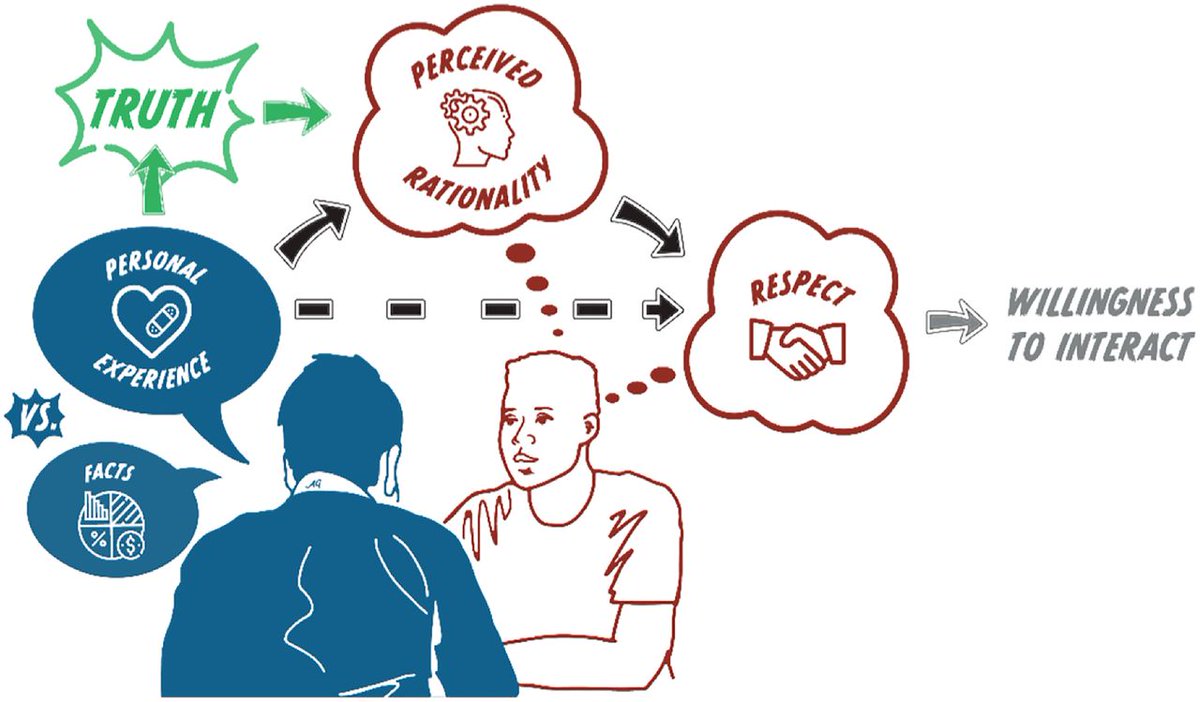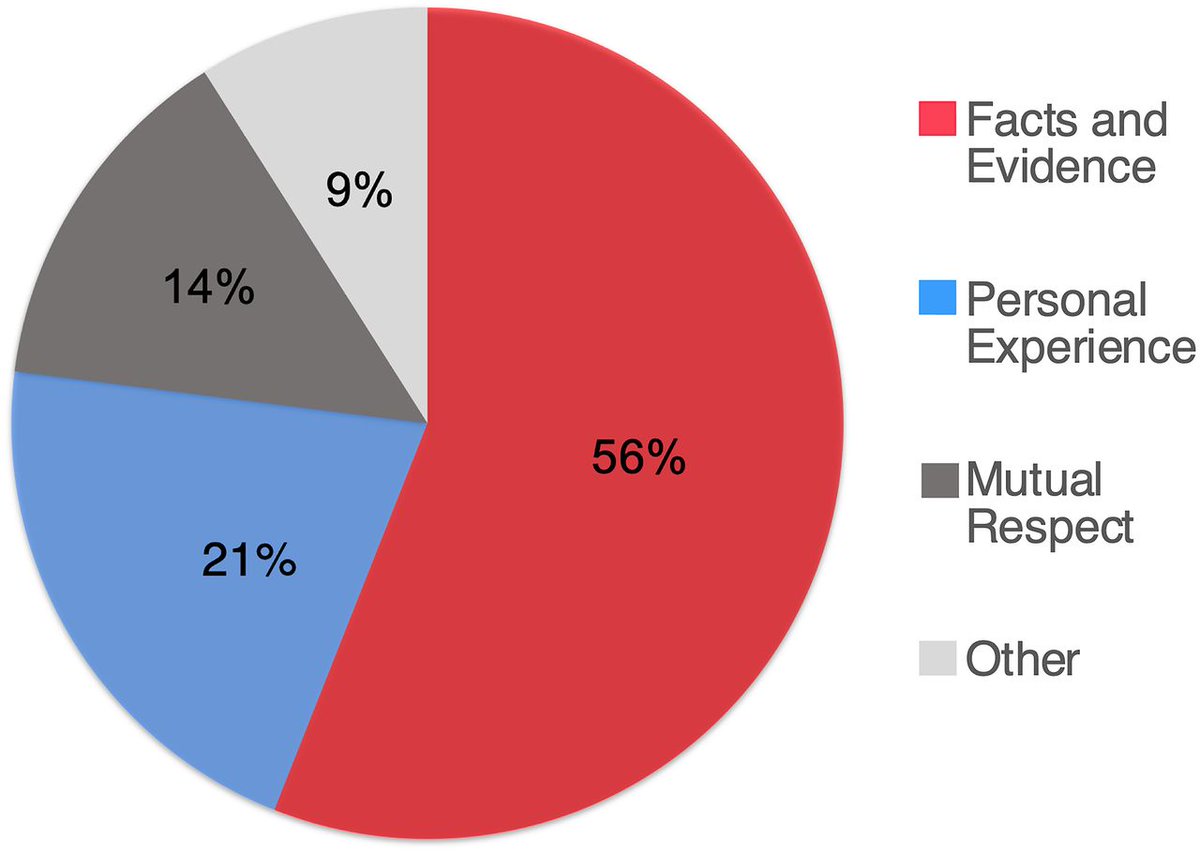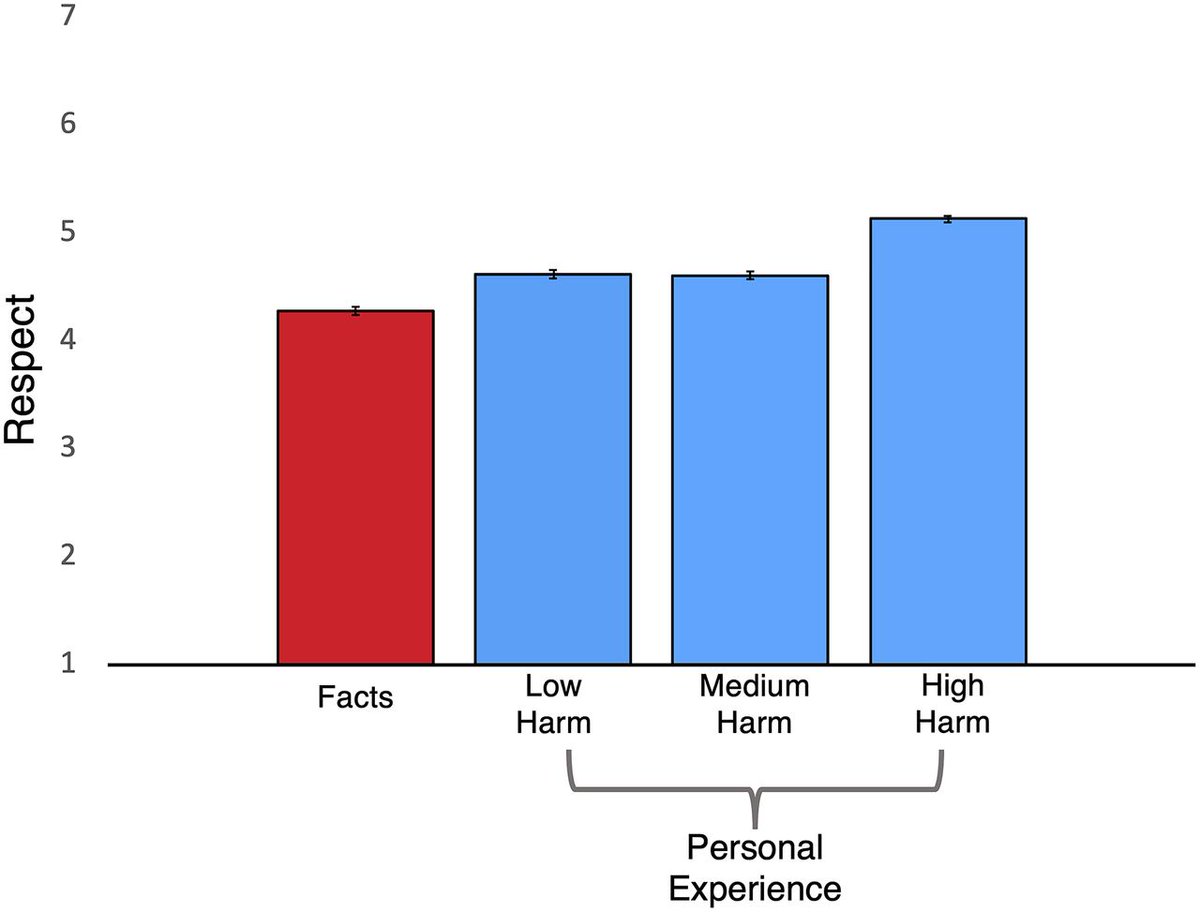Our new paper at @PNASNews.
15 studies show that we misunderstand how to bridge divides. We think that using facts in political/moral discussion should foster respect. But it's personal experiences (esp about harm) that best bridge divides. Thread.
https://www.pnas.org/content/118/6/e2008389118
15 studies show that we misunderstand how to bridge divides. We think that using facts in political/moral discussion should foster respect. But it's personal experiences (esp about harm) that best bridge divides. Thread.
https://www.pnas.org/content/118/6/e2008389118
First, shout out to amazing co-authors @emily_kubin, @CurtisPuryear, @ChelseaSchein, and the incomparable @jaricheson for being an amazing editor. Also learned that we had the great @AdamGalinsky as a thoughtful reviewer.
Starting assumption is that much disrespect in politics comes from seeing the “other side” as irrational, but how to increase rationality? Philosophy/science has long linked rationality to objective facts, and so perhaps using objective facts increases rationality
Ppl also belief that deploying facts should increase rationality/respect, but it doesn’t. Across various contexts (conversations about gun, ratings of OpEds, interview transcripts of Fox News and CNN), facts fail.
The reason facts fail when it comes to moral disagreement is because they seem untrue in this post-truth "fake-news" world. Instead, personal experiences seem true, even from opponents.
The most respect-inducing experiences are about harm. Not only is harm a common currency in morality but it is rational for any organism to avoid harm.
Lots of open questions left, especially generalizability to other countries, contexts, targets, and issues especially concerning race & gender (e.g., #BLM, #MeToo  ), but social movements seem to often be catapulted by experiences of harm.
), but social movements seem to often be catapulted by experiences of harm.
 ), but social movements seem to often be catapulted by experiences of harm.
), but social movements seem to often be catapulted by experiences of harm.
Our hope is that people can take the results and hopefully have more respectful conversations in an era of extreme polarization. Happy for comments/thoughts!

 Read on Twitter
Read on Twitter





